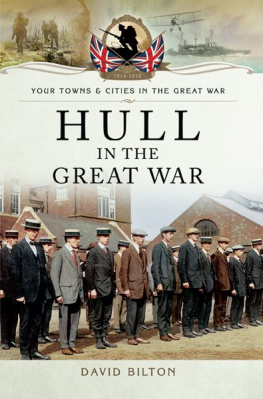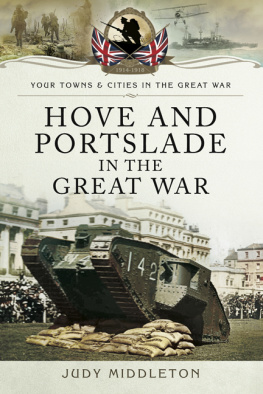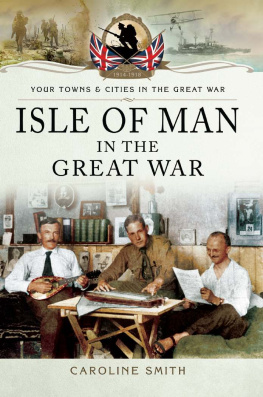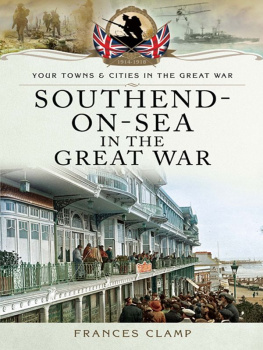First published in Great Britain in 2014 by
Pen & Sword Military
An imprint of
Pen & Sword Books Ltd
47 Church Street
Barnsley
South Yorkshire
S70 2AS
Copyright John J Eddleston 2014
ISBN: 978 1 78346 296 4
EPUB ISBN: 978 1 47384 440 7
PRC ISBN: 978 1 47384 447 6
The right of John J Eddleston to be identified as Author of this work has
been asserted by him in accordance with the Copyright, Designs and
Patents Act 1988.
A CIP catalogue record for this book is available from the British Library.
All rights reserved. No part of this book may be reproduced or transmitted
in any form or by any means, electronic or mechanical including
photocopying, recording or by any information storage and retrieval
system, without permission from the Publisher in writing.
Designed by Chapter & Verse Designs
Printed and bound in England By
CPI Group (UK) Ltd, Croydon, CR0 4YY
Pen & Sword Books Ltd incorporates the Imprints of Pen & Sword
Aviation, Pen & Sword Family History, Pen & Sword Maritime, Pen &
Sword Military, Pen & Sword Discovery, Pen & Sword Politics, Pen &
Sword Atlas, Pen & Sword Archaeology, Wharncliffe Local History,
Wharncliffe True Crime, Wharncliffe Transport, Pen & Sword Select, Pen
& Sword Military Classics, Leo Cooper, The Praetorian Press, Claymore
Press, Remember When, Seaforth Publishing and Frontline Publishing.
For a complete list of Pen & Sword titles please contact
PEN & SWORD BOOKS LIMITED
47 Church Street, Barnsley, South Yorkshire, S70 2AS, England
E-mail:
Website: www.pen-and-sword.co.uk
Contents
Introduction
The city of Southampton, which it became in 1964, has a long and proud history and has played a major part in many of the foreign campaigns that England and Britain have fought.
It was the Norman Conquest that first made the town into a major port. The capital of the country at the time was Winchester and Southampton was the closest port to that capital. From that time on, Southampton was one of the chief ports of the country. A centre of imports and exports and vital for commerce, Southampton was, on the darker side, also notable as the place that brought the Black Death to England in the mid-fourteenth century.
Being a major port on the south coast, the town was also important in time of war. During the English Civil War, Southampton was a Parliamentary stronghold and though Royalist forces attempted to take the city, they failed. Later in history, Southampton was of crucial importance for the embarkation of troops to the Napoleonic Wars, the Crimean War and the Boer War.
The town saw other major historical events. The Pilgrim Fathers sailed from Southampton in 1620 and, of course, Southamptons name is forever linked with the terrible tragedy of the Titanic in 1912. Many of the crew of that ill-fated vessel came from Southampton and around one third of all those who perished came from Southampton. It is not surprising, then, that the town suffered so badly from the loss of the unsinkable Titanic and that monuments to the event can still be seen there.
It should come as no surprise that when hostilities broke out between Britain and Germany in 1914, Southampton would once again come to play a major role. Though it is true that there was a good deal of fighting in the Middle East and Africa, the main theatre of war was the European mainland. From the very outset it was clear that troops would be needed in France and Belgium and in order to get those troops to where they were needed, along with all their equipment and supplies, a south coast port would be required. Southampton was immediately designated Port Number One, underlining its importance in the eyes of the military and political authorities.
Of course, no one could know in the late summer of 1914 that the war would last so long. At the outset, many people believed that the fighting would be over by Christmas. Had that been the case then perhaps Southampton would only have seen around 100,000 troops pass through the port but, once it became clear that this would be a long, bloody war of attrition, then the city authorities knew that Southampton would play a major role in supplying men and equipment for the war effort. In fact, once the fighting was finally over, the Town Council announced that between August 1914 and November 1918, no fewer than 7,000,000 men, over 820,000 horses and mules, some 14,000 guns, 110,000 vehicles, and 3,500,000 tons of stores, supplies and ammunition had been sent to France from the port of Southampton. The port had handled a total of more than 16,500 ships and it must be remembered that this represents only what was sent to France. Southampton also sent troops and equipment to other theatres of war and these figures also do not include all the men who survived the war and were sent back to England through the same port.
At the end of the war there were hundreds of ships that sailed from Southampton to repatriate soldiers of the British Empire to India, Canada, Australia, New Zealand and other countries.
On a more personal level Southampton played a vital role in the war effort. There were many families who supplied three, four and more sons to the various branches of the armed forces. There were regular flag days and fund raising activities for such worthy causes as hospitals, comforts for the men in the front line and to provide ambulances for the Red Cross. There were even collections, later in the war, to raise money to buy a tank! League tables of this fund raising in the major towns and cities throughout the United Kingdom were published and Southampton was always to be found towards the top of those tables, usually only beaten by cities such as Glasgow and Birmingham, which had much larger populations.
There are stories of many small towns supplying men to the army and who were formed into the so-called Pals Battalions, many of which were to suffer terrible losses in battles such as the Somme. It must be remembered that, being a port, Southampton supplied many men to the navy and they fought in such battles as Jutland, the greatest naval engagement of the war. Others served on supply ships and hospital ships and they suffered heavy losses, especially to the German U-boats.
Many other men went into the infantry regiments, especially the Hampshires. That regiment fought in many battles, including Messines, Ypres, Gallipolli, Polygon Wood, Cambrai, and Passchendaele. In total the Hampshire Regiment lost 7,580 men, many of whom were sons of Southampton and the surrounding areas. The Hampshires were awarded a total of eighty-two battle honours, along with three Victoria Crosses.
Finally, it was during the Great War that, for the first time, a new dimension was added to the weaponry; that of the aircraft. Men from Southampton also fought, and gave their lives, in the new aeroplanes, adding their own names to the many that would appear on monuments after the fighting was over.
It is a truism that almost every city, town, village and hamlet sacrificed something in the war of 1914 to 1918 but few gave as much as Southampton. Without the efforts of the people, and the facilities of the port and city of Southampton, there was little possibility that Britain and her allies could have faced the onslaught of the Central Powers and the war might well have been lost.
In many ways, we can say that Southampton played a crucial role not only in the war effort but also in the final victory of November 1918. It is a proud record and a proud history.
Chapter One
1914 The Summer of Peace
The year 1914 started full of hope and contentment. January was a month that saw Southampton receive only twenty-three per cent of the expected average rainfall. Readers of the local newspapers discovered that the first steamboat had passed through the Panama Canal on the 7th and, one week later, on the 14th, Henry Ford introduced a new concept to his factories, that of the production line.
Next page













